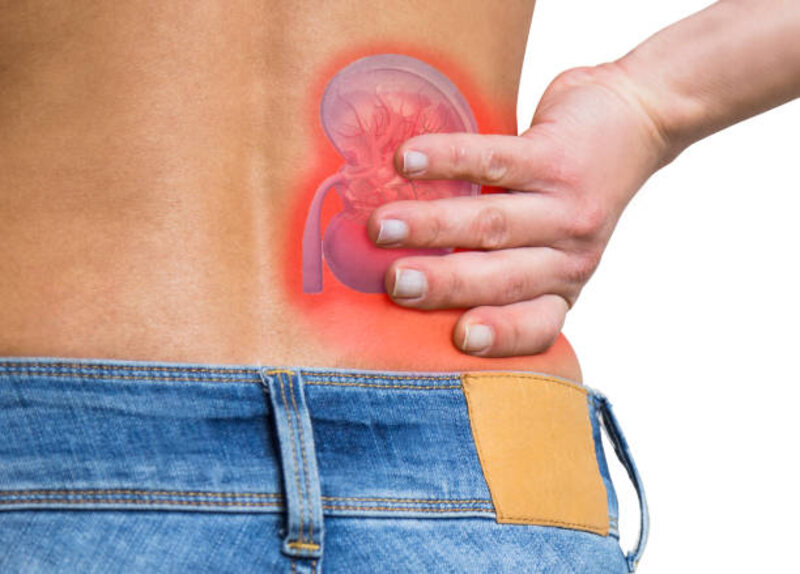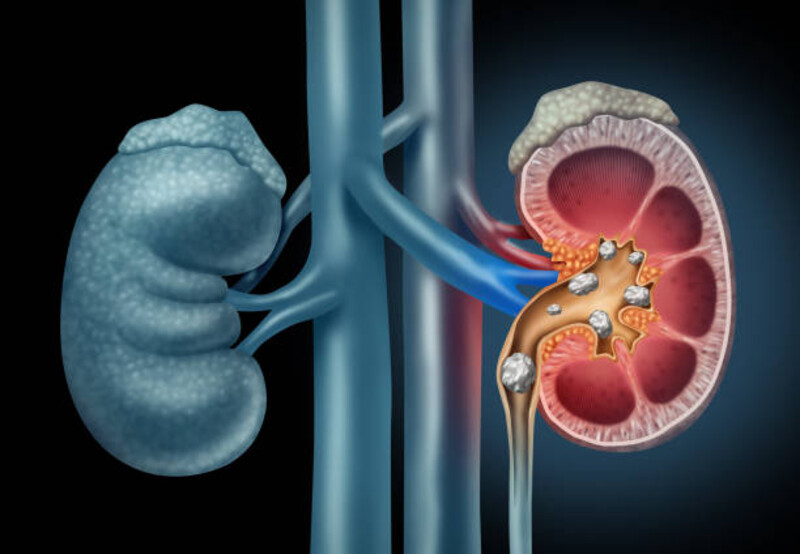Understanding Kidney Stones: An Overview of Treatment Options
Nov 07, 2023 By Madison Evans
Kidney stones are a painful yet common issue that many people suffer from at some point in their lives. These hard, mineral deposits can cause severe back or abdominal pain and leave sufferers feeling helpless against the discomfort. If you or someone you know is dealing with kidney stones, understanding what causes them and what treatments may be available could help reduce the frequency of pain episodes and ease any discomfort associated with this condition. In this blog post, we’ll explore different factors that can lead to kidney stone formation, review potential treatment options for managing existing kidney stones, and discuss how to prevent reoccurrences in the future.
What are Kidney Stones and How do they Form?
Kidney stones are made up of minerals and acids that can crystallize and become concentrated over time. Although they can vary in size and shape, kidney stones can be extremely painful when they pass through the urinary tract. The formation of kidney stones can be caused by a variety of factors, including dehydration, a diet high in salt or protein, urinary tract infections, and certain medical conditions.
Prevention is key when it comes to kidney stones, and staying hydrated and maintaining a healthy diet can help reduce the risk of developing them. If you are experiencing symptoms of kidney stones, such as pain or discomfort in the abdomen or back, it's important to seek medical attention right away to receive proper treatment.
Diagnosing and Treating Kidney Stones:

Dealing with kidney stones can be a painful experience. For those who suffer from this condition, diagnosis and treatment become top priority. Early detection is key in preventing irreversible damage to the kidneys. The first step in diagnosis is usually a physical exam and imaging tests. Once kidney stones are confirmed, treatment options become available.
Small stones may pass on their own, but larger stones may require medical intervention. Medications, sound waves, or surgery may be necessary depending on the size and location of the stone.
a. Imaging Tests for Diagnosis:
When it comes to diagnosing certain medical conditions, imaging tests can provide invaluable insights. These non-invasive procedures such as X-rays, MRIs, and CT scans, use advanced technology to produce detailed images of the body's internal structures. From detecting fractures and identifying tumors to locating infections, imaging tests can help physicians get to the root of the problem. They can also guide treatment decisions and track progress over time. While these tests are generally safe, it's important to remember that they do expose the body to some level of radiation.
b. Medication and Diet Changes:
Maintaining a healthy body can be challenging, especially when it comes to taking medications and adjusting your diet. Understanding the benefits of these changes can make all the difference in your overall well-being. Medications can help manage medical conditions, but it's essential to follow the prescribed dosage and schedule to ensure efficacy and minimize side effects.
When it comes to diet, making small changes, such as incorporating more fruits and vegetables or reducing saturated fats, can have a significant impact on your health. Consulting a healthcare professional can provide you with personalized guidance on how to manage your medications and diet changes, making it a manageable and rewarding journey towards a healthier you.
c. Surgery as a Treatment Option:
When it comes to treating certain health conditions, surgery can be a viable option. Depending on the severity of the condition and individual circumstances, surgery may be the best course of action in order to restore health and improve quality of life. While the thought of going under the knife can be daunting, surgical procedures have come a long way, and advances in technology and techniques have made many surgeries minimally invasive and relatively safe. It's important to consult with a qualified healthcare provider to determine if surgery is right for you, but if it is, taking the step towards a surgical option could be the beginning of your road to recovery.
Preventative Measures to Avoid Kidney Stones:
Kidney stones can be excruciating and debilitating, and nobody wants to experience that kind of pain. There are a few simple steps you can take to prevent them from forming in the first place. Staying hydrated is key, as dehydration can lead to a concentration of minerals in the urine – a major precursor to kidney stones.
Reducing your intake of sodium and animal protein can help to lower your risk. Certain foods – such as leafy greens, whole grains, and citrus fruits – can also support kidney health and help prevent the formation of stones.
a. Eating a Balanced Diet:
Eating a balanced diet is crucial for maintaining good health and overall well-being. A balanced diet should consist of a variety of foods that provide all the necessary nutrients, including carbohydrates, proteins, fats, vitamins, and minerals.
It's important to consume foods in appropriate portions and avoid overindulging in unhealthy snacks and processed foods that are high in sugar, salt, and unhealthy fats. Eating a balanced diet can help prevent chronic diseases such as diabetes, heart disease, and obesity, as well as improve your mental health, energy levels, and mood.
b. Keeping Hydrated with Water or Other Fluids:
Staying hydrated is crucial for maintaining good health, but sometimes it can be difficult to remember to drink enough fluids. Drinking water is the best way to quench your thirst and keep your body functioning properly. Water helps regulate body temperature, transport nutrients, and aid in digestion. Water isn't the only way to stay hydrated. Many other fluids, such as sports drinks, herbal teas, and even certain fruits and vegetables can also help keep you hydrated.
Seeking Help from Your Healthcare Provider for Chronic Kidney Stones:

Chronic kidney stones can cause a great deal of discomfort and pain, and seeking help from your healthcare provider is essential in managing this condition. Your provider can assess your overall health and offer treatment options that can help alleviate your symptoms and prevent future kidney stones from forming.
These may include;
- Medications
- Lifestyle changes
- Dietary modifications
- Even surgical interventions
Don't hesitate to reach out to your healthcare professional if you're struggling with chronic kidney stones - they are there to help you manage your condition and improve your quality of life.
Conclusion:
Kidney stones can bring immense pain and discomfort if not properly treated, but with proper preventive measures and early intervention, kidney stones can be successfully managed. Before taking any medication or resorting to surgery be sure to consult a medical professional for proper diagnosis and advice. There are many lifestyle changes that can help you decrease the risk of forming kidney stones such as maintaining an active lifestyle, eating a balanced diet high in calcium, and drinking lots of fluids.








